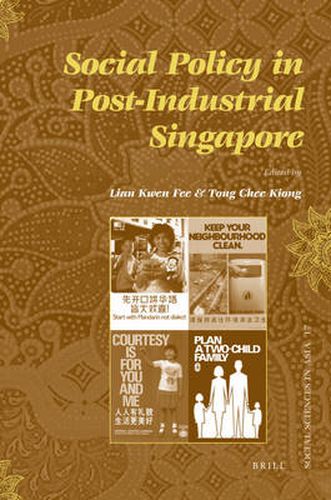Readings Newsletter
Become a Readings Member to make your shopping experience even easier.
Sign in or sign up for free!
You’re not far away from qualifying for FREE standard shipping within Australia
You’ve qualified for FREE standard shipping within Australia
The cart is loading…






Notwithstanding the lean years that followed 1986 and 1997, sustained economic growth since the late 1970s has propelled Singapore into the post-industrial age and reproduced the demographic and social structure of advanced western societies. The rapid shift to a knowledge-intensive economy requiring highly-skilled services has resulted in a ‘two-speed’ society consisting of a highly competitive but rewarding sector and a marginalized population that is increasingly at risk. Being avowedly anti-welfarist, the state for ideological reasons has resisted pressures to introduce a comprehensive welfare regime for its risk population, preferring to privilege its productive citizenry. Is Singapore a counter-factual to the convergence thesis, by preferring to put in place a social policy driven by the belief of its leaders that the more successful a society is the more it is able to care for those who fall behind?
$9.00 standard shipping within Australia
FREE standard shipping within Australia for orders over $100.00
Express & International shipping calculated at checkout
Notwithstanding the lean years that followed 1986 and 1997, sustained economic growth since the late 1970s has propelled Singapore into the post-industrial age and reproduced the demographic and social structure of advanced western societies. The rapid shift to a knowledge-intensive economy requiring highly-skilled services has resulted in a ‘two-speed’ society consisting of a highly competitive but rewarding sector and a marginalized population that is increasingly at risk. Being avowedly anti-welfarist, the state for ideological reasons has resisted pressures to introduce a comprehensive welfare regime for its risk population, preferring to privilege its productive citizenry. Is Singapore a counter-factual to the convergence thesis, by preferring to put in place a social policy driven by the belief of its leaders that the more successful a society is the more it is able to care for those who fall behind?